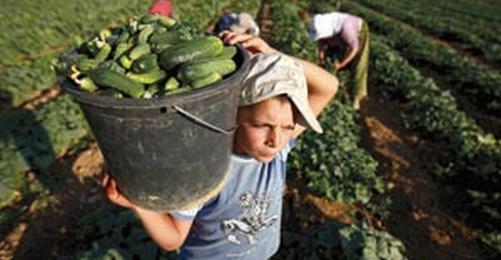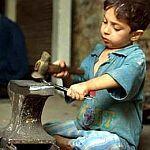In order to be able to raise the level of welfare for children, on 14 December 1954 the United Nations (UN) declared every first Monday in October "World Children's Day". This special day is being celebrated all around the world with various activities. Sadly enough, Turkey does not consider the World Children's Day too important. Turkey has still a long way to go for further progress in protecting the rights of the child.
According to the European Union (EU) 2010 Progress Report, the number of violations of children's rights in Turkey is still quite high. On the other hand, the report also mentioned relative progress in Turkey in the field of children's education and justice. The report noted that as of July 2010, children and juveniles standing accused of "terror crimes" shall be tried before juvenile courts instead of courts for adults. This was put down as a positive development in the report.
Attention was also drawn to 6,233 children and juveniles in detention as of 17 September 2010. A considerable part of these children is still imprisoned in prisons and detention centres for adults, it was stated. The report criticized the "lack of well-trained personnel" in prisons and detention centres.
The report noted a large improvement in the prevention of child labour.
Data from the Ministry of Labour and Social Security revealed that one million out of 17 million children are working in Turkey. Even though the Labour Law defines the minimum age to start working at 15, the law allows going down to 13 years of age for light work.
The International Labour Organization (ILO) defines the age limit of child labour at 15 years of age. However, in Turkey 21 percent of one million children workers are twelve years old; 28 percent are eleven; 19 percent are ten and 9.4 percent are nine years old or younger. This means that more than three quarters of all child workers in Turkey are twelve years or - most of them - younger. In Turkey, 42,000 children are homeless. The child workers younger than 15 years of age make up 70.9 percent of the age group up to 18 years old. Moreover, 62.4 percent of these child workers are working six days a week more than twelve hours per day.
The report also stated that "about 200,000 children in Eastern and South-Eastern Anatolia, most of them girls," did not go to school. The Social Services and Child Protection Institution (SHÇEK) is mentioned in the report as having remained limited in many aspects.
The report's most striking criticism is the reservations put by Turkey to the UN Convention on the Right of the Child. Turkey signed the convention in 1995 when the state put reservations on the provisions regarding "language rights and cultural identity" which have not been removed yet. (IK/HK/VK)












